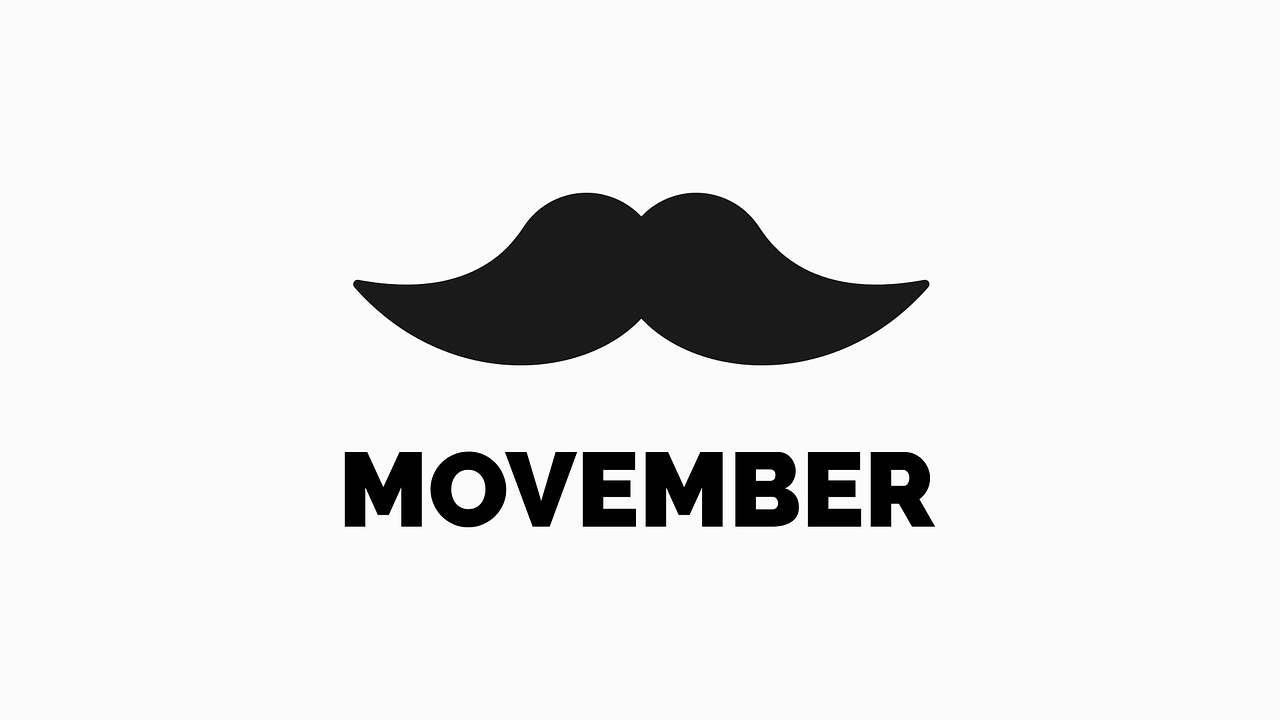The highlight of the Movember Foundation’s work, Movember is a month-long charity event where men all over the world “grow a mo” and work to raise awareness for men’s specific health issues, like prostate and testicular cancer, as well as male suicide.
As part of that, we’re doing our part here to bring attention to mental health issues that men may deal with, and normalize conversations about them. In this article, we’re going to do an overview of what mental health means and what we can do to take care of ourselves and the men in our lives.
Mental Health
Frequently, men can be stereotyped to be feelingless, or their emotions maligned because of “strong man” caricatures. However, it’s important to know that men deal with mental health, and how it can be quite literally vital to talk about them. Suicide is one of the leading killers of men in the US, killing about 4x as many men as women each year. Having conversations about men’s mental health can save lives.
Sometimes, terms like depression and anxiety get tossed around, to the point where some people don’t realize they can be a real clinical diagnosis . Mental illnesses, like Major Depressive Disorder and Generalized Anxiety Disorder, are just some very real mental health issues that men struggle with on a daily basis. Frequently these illnesses can be found in conjunction together and can have serious, life-impacting symptoms.

Depression
Major Depressive Disorder, or clinical depression, is a mood disorder that is associated with feelings of persistent sadness and lack of interest. It’s not simply having an off day, or being in a short funk. Depression is a clinical diagnosis and can require extensive treatment from therapies like talk or cognitive-behavioral, or antidepressant medications like selective serotonin reuptake inhibitors (SSRI).
Symptoms of depression include, but aren’t limited to:
- Feelings of Hopelessness
- Loss of Interest in Hobbies or Activities
- Trouble Concentrating, or slowed thought
- Insomnia, or excessive daytime sleepiness
- Frequent or repetitive thoughts of death, or suicide.
- Withdrawal from Social activities
If you develop these symptoms, talk to your doctor. If you’re struggling with depression, you’re not weak. In fact, admitting to these feelings can sometimes be very difficult.
While it’s important to differentiate between clinical depression and general sadness, that doesn’t mean that you shouldn’t get help because you don’t think your feelings are bad enough yet. Rather, talk to a professional before you begin to have serious suicidal thoughts, as it can be easier to manage your depression if it’s less serious. Moreover, it’s vital you find healthy tactics to deal with depressive thoughts before a diagnosis is made. That way you can live a happier, healthier life.

Anxiety
The term anxiety is often used as a catch-all term for stress or different anxiety orders, of which there are many. Issues like Post-Traumatic Stress Disorder (PTSD), Obsessive-Compulsive Disorder (OCD), Panic Disorder, or Generalized Anxiety Disorder all fall under the umbrella of anxiety. Some of these issues, like OCD, can be lifelong, while others, like PTSD, are caused by specific circumstances.
Sometimes, we deal with intense feelings of anxiety when it seems like there is nothing at all to provoke it. This is the main symptom of Generalized Anxiety Disorder. In America, almost 4 million adults each year will struggle with GAD or about two percent of the population. There are a number of different symptoms, including:
- Excessive, Consistent, Worrying
- Trouble Focusing
- Increased feelings of Irritability
- New or Significant Insomnia
Moreover, GAD often piggybacks itself on other mental disorders. People struggling with GAD often also have serious panic attacks, where they have significant feelings of impending doom, chest pain, heart palpitations, or sweating. If you are having panic attacks frequently, it is important to talk to your doctor.

What Can I Do?
If you’re struggling with your mental health, or if you know people that are, you may be wondering what you can do about it. Fortunately, there are many ways you can start to take better care of yourself and others.
If You’re Struggling
If you’re struggling with mental health issues, like depression or anxiety, it’s important that you take action. There are things you can do to get help.
Some of the simplest things to try first are lifestyle changes. Often, disorders like depression can force people into lifestyles that exacerbate issues. This can cause a downward spiral. If you feel like you’re dealing with a mental health issue, things like diet changes, exercise, or practicing mindfulness can lead to substantial improvement. These changes can lead to your brain producing more positive hormones and feelings, which can alleviate mental health issues.
If you have more significant issues, your doctor may refer you to counseling. This can involve seeing a therapist, who might employ strategies like cognitive behavioral therapy or talk therapy—or seeing a licensed psychiatrist, who can prescribe medications like antidepressants. Either way, it’s crucial to take your mental health seriously and talk to a doctor if you are struggling.

Support Movember
The Movember Foundation takes men’s mental health very seriously. On their website, they have a myriad of resources to learn more about men’s mental health, and also use their funding to support clinics and research into men’s health issues. As a non-profit, one way that you can support them is by donating money. Outside of their November-centric campaigns, they do work all year round and need funding during that time. If you are in a position to, consider sending a donation.
However, every year, they run their “Movember” event, where men (and people of any gender that are able to) grow a mustache, or ‘mo, to raise funds and awareness for men’s health issues. As part of this, they ask people they’re connected to donate money to the Movember foundation. They also have a variety of other ways people who can’t grow mustaches can get involved, so check out their website for ways that you can join the ‘mo’vement.



